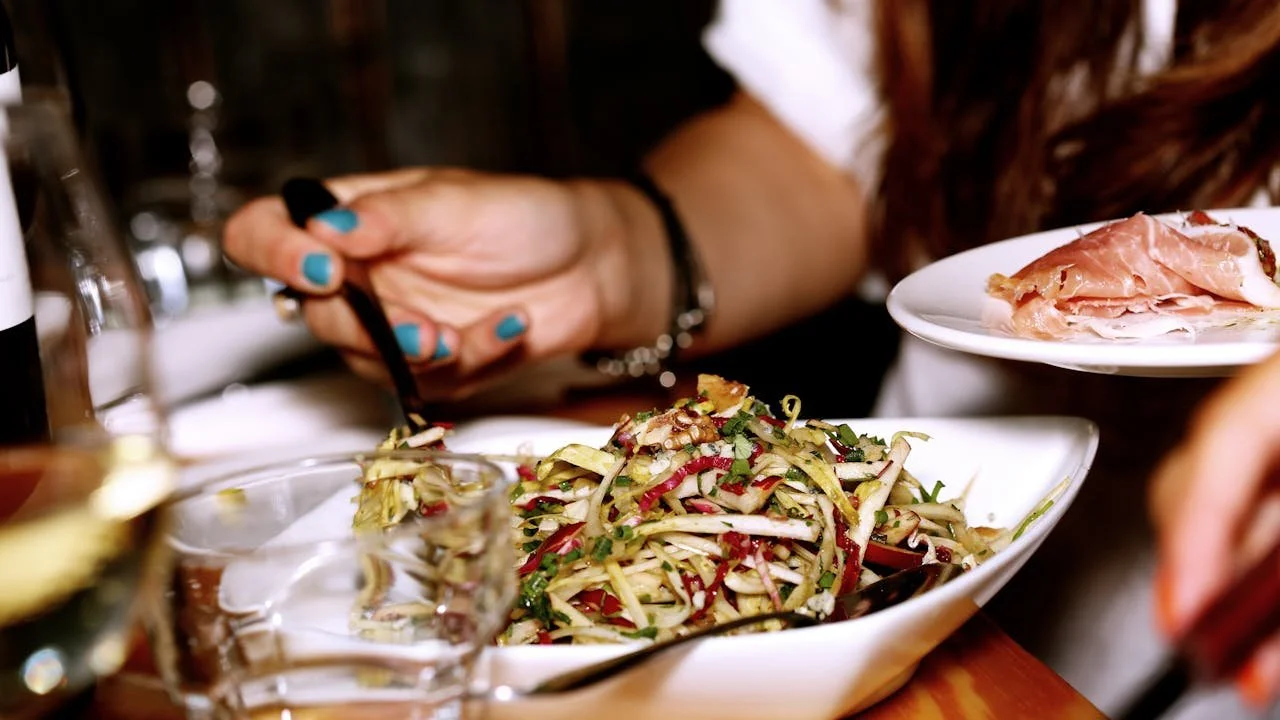Emotional Eating & How to Stop It
Emotional eating is using food to make yourself feel better rather than eating because you're hungry. Many of us turn to food for comfort during difficult times or when experiencing negative emotions. There are a few reasons why we emotionally eat:
Food triggers the release of feel-good hormones like serotonin, which can temporarily improve one's mood. The physical act of eating also distracts from the unpleasant emotions one is experiencing.
Emotional eating is often a learned behavior from childhood. If your parents gave you treats to make you feel better as a kid, you likely associated food with comfort and carried that into adulthood.
Low self-esteem or lack of confidence in managing emotions in a healthy way. If you don't have better coping strategies, you rely on food to self-soothe.
The situations you're in trigger the urge to eat. For example, watching TV, being around family or friends eating, or driving by your favorite fast food restaurant. These cues make cravings kick in and harder to resist.
Some of the triggers that most often lead to emotional eating include:
Stress: Feeling overwhelmed by demands at work or home. Eating is a way to escape stress and seek comfort.
Anger or frustration: Eating to avoid dealing with angry feelings or as a way to gain a sense of control over your situation.
Loneliness or boredom: Using food as a way to fill time or fill an emotional void in the absence of social interaction or stimulation.
Fatigue: Being overly tired reduces your willpower and self-control, making you more susceptible to emotional eating. Get enough sleep and rest to avoid this trigger.
To overcome emotional eating, you need to become aware of your triggers and cravings, learn healthier ways to cope with difficult emotions, and establish a balanced lifestyle with regular mealtimes and snacks. It will take practice and patience, but by developing a healthier relationship with food, you can break free from the cycle of emotional eating.
Strategies to Stop Emotional Eating for Good
You must dig deep and make lasting changes to overcome emotional eating for good. It won't happen overnight, but you can retrain your brain and break the habit with commitment and practice.
Identify your triggers
The first step is figuring out what triggers your emotional eating episodes. Keep a journal and write down what you're feeling when cravings strike. Are you stressed, anxious, bored, or lonely? Look for patterns to anticipate vulnerable times and have a plan in place.
Find alternative coping strategies
Instead of reaching for food, have other options, like calling a friend, walking, reading a book, or pursuing a hobby. Exercise is also a great way to boost your mood and ease anxiety without the calories. The more you practice alternate coping strategies, the more automatic they'll become.
Pay attention to your fullness cues
Emotional eaters often ignore signs they're full and just keep eating. Start eating slowly, chewing thoroughly, and checking in with yourself every few bites to see if you're still hungry. Stop eating when you're satisfied, not full. Initially, it will feel strange, but your body and mind will adapt.
Challenge unhealthy thoughts
Negative or irrational thoughts often fuel emotional eating. Identify negative thoughts about food, your body, or your self-worth and replace them with more constructive ones. For example, change "I blew my diet, so I might as well keep eating" to "One slip-up is OK. I can get back on track with my next meal." Over time, positive thoughts will become a habit.
Each time you overcome the urge to overeat in response to emotions, you strengthen your ability to make healthier choices. If you're looking for better coping mechanisms, we are here for you. Contact us today to learn how depression therapy can help you develop a healthier relationship with food and yourself.

